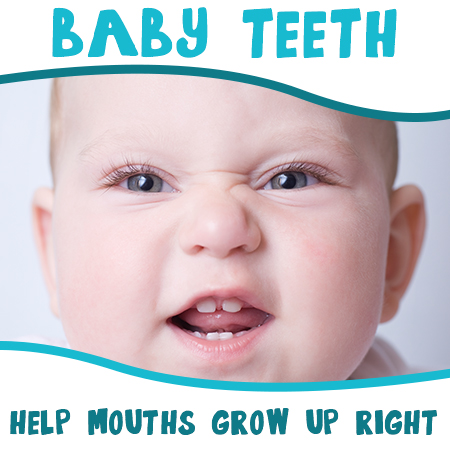How Baby Teeth Help Mouths Grow Up Right
 Every parent remembers seeing their baby’s first teeth emerge, watching the rest pop up, and finally cheering as their child loses their first baby tooth, all in the blink of an eye! In fact, baby teeth come and go so quickly that some people are led to believe they don’t have an impact on a child’s dental health later in life.
Every parent remembers seeing their baby’s first teeth emerge, watching the rest pop up, and finally cheering as their child loses their first baby tooth, all in the blink of an eye! In fact, baby teeth come and go so quickly that some people are led to believe they don’t have an impact on a child’s dental health later in life.
Dr. Ryan Whalen wants you to know that that couldn’t be further from the truth! At Whalen Dentistry, we are committed to giving our community access to reliable information on dental care, so here are the facts about why baby teeth matter.
A Guide to Baby Teeth
Baby teeth, also known as deciduous, primary, milk, or lacteal teeth, are a set of 20 teeth that will be in your child’s mouth for most of their childhood. Although baby teeth usually emerge at around 6 months, they begin forming in the womb as early as 16 weeks. By age 3, children should have all 20 of their baby teeth. By age 13, all their permanent teeth (except for wisdom teeth) will have come in.
Why Baby Teeth Matter
Your child’s primary teeth play a crucial role in their life. They may only be around for the first few years, but they set the stage for dental health and proper development in the future. Here’s what Dr. Ryan Whalen would like every Cornelius parent to know about primary teeth:
- They make chewing possible so that babies can learn to eat solid food
- They help kids learn to speak quickly and clearly
- They save space for permanent teeth as children’s mouths grow
- They help kids learn the importance of oral hygiene
Taking Care of Baby Teeth
The best way to ensure lifelong dental health is to teach your kids about oral hygiene with consistent, but fun routines. Brush their teeth twice a day and floss them at least once a day. Most importantly, make sure to visit us when your baby’s first teeth emerge, and then twice a year after that for regular checkups and cleanings. We love to help families maintain great oral health and wellness, so please contact us if you have any questions.
The content of this blog is not intended to be a substitute for professional medical advice, diagnosis, or treatment. Always seek the advice of qualified health providers with questions you may have regarding medical conditions.
